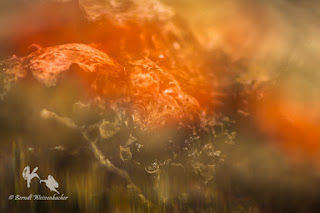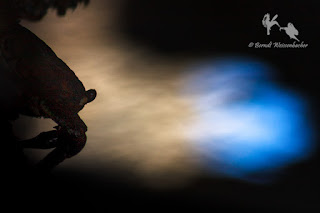I am certain that I am not
alone in my frustration over the current lockdown restrictions on movement of
individuals and travel imposed by the majority of governments worldwide in
response to the COVID-19 (SARS-CoV-2)
pandemic. As these restrictions have been extended over months, my own
opportunities as a photographer have been limited severely.
If I were informed by
government that I would have to spend the rest of my life ‘isolated’ on a
particular tiny patch of this planet’s surface (an area of 50 metres by 50
metres, say), what kind of environment would be ideal for photography? Shut
away from all others and never again being able to leave my assigned space, I
would hope that my new, restricted homeland would be situated somewhere along
the shoreline.
I am besotted with the
bushveld of Africa and spend most of my photographic opportunities in some
manifestation of this veld-type. However, square metre for square metre, the
shoreline (a stretch of rocky shore with a slither of sandy beach thrown into
the mix) beats any other wilderness environment hands down in terms of
photographic opportunities in a small, restricted area.
I have had only very few
opportunities to visit the coast (for various reasons that are of no importance
here). On the rare occasions that I have been privileged to take photographs in
this environment, I have worked myself to exhaustion. The variety of line,
shape, texture, pattern, rhythm and colour that is on show here and available
to a photographer to compose into wonderful images is endless. So too is the
variety of subjects: from the ceaseless to-and-fro movement of wave and surf
(quiet, gentle and caressing at one moment, thundering, overpowering and
abusive the next), to the exotic, intoxicating miniature gardens of the rock-pools
and the constant scuttling about and hide-and-seek of crabs and other denizens
of rock and sand.
A long time ago, in
pre-digital days, I spent my first ever week and a half of stills photography along
a very short strip of rocky shore in Scottburgh (KwaZulu-Natal Province, South
Africa). Only a single railway line and a low dune separated the house that a
work colleague had provided as accommodation for this trip from the rocky
shore. Each day I combed the same strip of coast thoroughly and intimately from
before sunrise to well after sunset, stopping only during the hottest midday
hours.
By the end of an exhilarating,
yet exhausting, first week, I was convinced that I had visited and explored
every square metre of this strip of rocky shore. Most certainly, I knew
intimately the path through the rocks from and to the gap in the tangled vegetation
of the dune that I had to cross to get to the rocky shore or to the house that
I was occupying. After all, by now I had trudged along this path four times a
day for a full week.
And yet, on the second last
day of my sojourn, quite late in the morning, on my way ‘home’, I stumbled
across a flat sheet of rock covered in the most intriguing lines. Immediately,
the outline of a cubist cartoon of a ‘fossilised’ fish popped into view. I must
have crissed and crossed over, walked on, looked at and inspected this small,
flat slab several times during the previous week without ‘seeing’ the potential
that this ‘rockscape’ offered, the unique and splendid arrangement of lines,
shapes and textures.
Here it had lain, my ‘Rock
Cod’, exposed to sun and surf, not for a week, but for years certainly. This
experience has taught me to look, look and look again. To ‘see’ and capture an
image that excites me requires not only the subject matter itself, but also a conjunction
of the subject, my mood, my imagination and my vision.




No comments:
Post a Comment